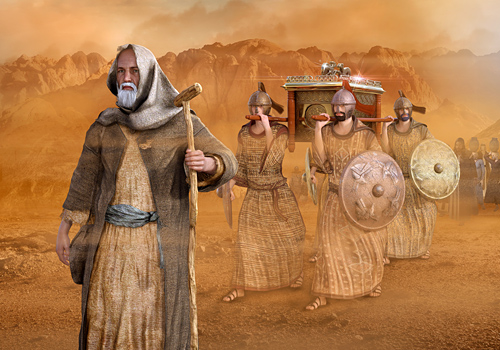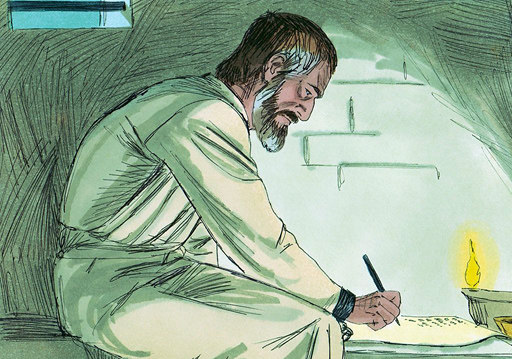Introduction the Book of Judges
This page is an introduction and summary for the book of Judges in the Christian Bible. (Judges is also in the Jewish Bible, but I'll be covering it from a Christian perspective).
I'm doing several new pages on the first five books of the Bible (the books of Moses, also called the Pentateuch), and the "former prophets" which are the books of Joshua, Judges, 1&2 Samuel and 1&2 Kings.
I'll be working on these new pages in parallel as I study for my Old Testament exam on the 10th of June, and adding to them as I study. I figured I might as well be writing my study notes up online as web pages, since now that this website is set up, it's not that much harder than just doing them in a Word document (or something like that).
Introduction to Judges
Judges is the second book of the former prophets (or "history books") section Bible. It's name in the Hebrew Bible is the hebrew word for Judges.
After the Israelites conquer the promised land in the book of Joshua, the generations after the conquest go into a spiritual decline. A quote which sums up a lot of the book of Judges is "In those days there was no king in Israel: every man did that which was right in his own eyes." (21:25)
Before Reading or Studying Judges
Before reading or studying the Bible, it's a good idea to take a short break — to think about where the book of Judges came from, and how it's relevant to your own modern life right now. Christians believe that the Bible is the inspired Word of God. That is, the words in Judges were recorded by people in the distant past, as given to them by God.
Also, the Bible is a living document — it's the living word of God. This is a foreign concept to most of our modern culture today, so it takes some time to think about, and get used to the idea of it. Many people think of God as not speaking directly to us. Yet as Christians, God does speak to us directly, in words — and the way God does this is through his words in the Bible. This means that it's directly relevant to us, personally, as we read it. As you read the words of Judges (even if you don't really believe in this kind of stuff yet, you can still try doing this, as an experiment), imagine that God is speaking to you, personally, and directly.
Also, the Bible is an ancient document. It's very old — and the first few books of the Old Testament, especially so. A lot of things have changed since God's words were first recorded by humans. This means a lot of the Bible can be hard to understand in our modern world today. Which is why we're so lucky to have so much access to resources that can help us to understand it. As you read the words of Judges, also imagine that you're back then, in the days when it was written. This can help a lot with understanding the meaning (of some parts of the Bible more so than others). Learning about what the words meant in their original setting is a really good place to begin trying to understand what they mean now. Keep this idea in mind as you read the rest of this web page, and as you read the Bible.
Also, the Bible is a precious document. Its true value is hard to imagine. It's probably fair to say that nearly everyone today underestimates its value — at least in the free and well-off countries, where it's very easy (and cheap) for anyone to obtain a copy of the Bible, or read it on the internet. To help get a better appreciation for the value of the Bible, think about how God's word has travelled down through the centuries, and been preserved by copyists, translators, printers, and other people. At times parts of it were lost, and then found again. In recent years, thousands of ancient copies of scrolls have been found, which were meticulously copied by hand over and over, for thousands of years. In some places and at some times, to own a copy of the Bible (or even to believe in it) would bring the death penalty. This included many of those who wrote parts of it, or were written about in it (such as the Apostles of Jesus).
Interesting Facts About the Book of Judges
- The main setting for Judges is after the Israelites have gone into the promised land (land of Caanan), "In those days there was no King in Israel", and "Everyone did what was right in his own eyes".
- The "judges" in the book were nothing like modern judges in courts of law, they were more like military leaders, or even "warlords" as some have called them. Others use kinder terms like "deliverer", in the sense of a series of leaders rising up and leading Israel out of (at least some of) their problems. Some have said that the central function of a judge (in the Book of Judges) was to go to war. This is a lot different from a modern judge in a court of law.
- There are six main/major judges, six minor/lesser judges, and one "anti-judge" (Abimelech), in a series, one after the other.
- Much of the book is generally seen as a dark age for Israel, when competing warlords ruled.
- Throught the book there is a gradual slide into ever-worse moral decline, from the days of Moses (and then Joshua) where the people (mostly but not entirely) followed a strong leader, who led them in the ways of God... To increasing fragmentation and lowering of moral standards of behaviour, which led to increasing distance from God, and increasing problems in many other areas of life.
- By the end of the book, the moral and social decline was such that the people realised they wanted a human king to rule over them, like the other nations around them had. The story of Israel's first king, Saul, is given in the next book (1 Samuel).
- The last (and probably most famous) of the major judges is Samson. He's (physically) the strongest man in the world, yet he has a massive weakness for women. He cannot control his sexual appetites, and this proves to be his downfall.
- A good term to describe the book of Judges overall is "downward spiral".
Read Judges
Click here to read the book of Judges.
Click here to see Judges in its original language of Ancient Hebrew. Or here to read Judges in Hebrew and English side-by-side.








